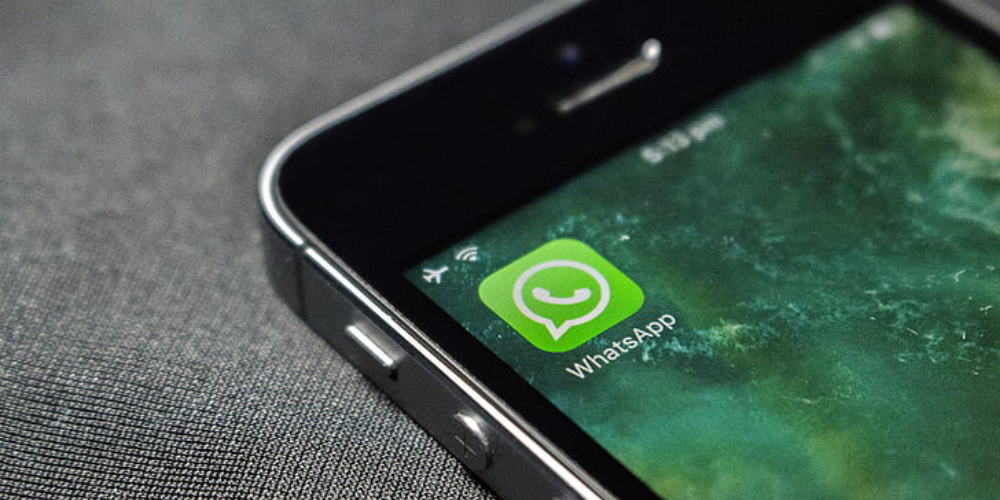
WhatsApp has become a critical part of day-to-day communication for billions of users. With such a vast user base, the importance of securing your personal data cannot be overstated. While the app boasts end-to-end encryption, ensuring that only you and the person you're communicating with can read what is sent, there are additional steps you can take to further protect your privacy.
Understand and Configure Your Privacy Settings

The first step in securing your personal data on WhatsApp is to understand and configure the privacy settings available to you. The app provides a myriad of options that allow you to control who can see your information and how you share it. To access these settings, open WhatsApp and go to 'Settings,' then tap on 'Account' followed by 'Privacy.' Here, you can adjust your 'Last Seen' status, profile photo, 'About' information, and status updates. You have the option to set these to be visible to 'Everyone,' 'My Contacts,' or 'Nobody.' Being selective about who can see your personal information is crucial in minimizing your digital footprint and keeping your data secure.
Beyond the basics, delve deeper into the privacy settings and take advantage of other features such as 'Read Receipts,' which you can turn off to prevent senders from knowing when you have read their messages. Additionally, consider enabling two-step verification to add an extra layer of security to your WhatsApp account. This feature requires a six-digit PIN when registering your phone number with WhatsApp again.
Regularly Review and Clean Your Chat History

Managing your chat history is an essential aspect of protecting your personal data. Regularly reviewing and cleaning your chat history can prevent sensitive information from remaining on your device longer than necessary. To delete individual chats or entire chat histories, go to the chat you wish to remove and swipe left. Select 'More' and then 'Delete Chat' to remove all messages within that chat. For extra privacy, you can also clear your entire chat history by going to 'Settings,' 'Chats,' and then 'Clear All Chats.' Remember, once you delete your chat history, it cannot be recovered, so ensure that you back up any important information before proceeding.
An often overlooked feature is the ability to enable disappearing messages for specific chats. This feature automatically deletes messages after a set duration, ranging from 24 hours to 90 days, depending on your preference. To turn on disappearing messages, open a chat, tap the contact's name, and select 'Disappearing Messages.' Choose the desired time frame for messages to be deleted. This not only helps in keeping your chats tidy but also significantly reduces the risk of someone accessing old messages should your device become compromised. While this feature does not replace the need for regular chat history management, it is a powerful tool for maintaining your privacy.
Be Cautious with Backup and Cloud Services

While backing up your WhatsApp chats can be convenient for restoring conversations in case of device loss or change, it's important to be cautious about how and where you back up your data. Backups to cloud services such as Google Drive or iCloud may not be encrypted in the same way your in-app communication is, potentially making your data more vulnerable. To manage your backup settings, go to 'Settings,' 'Chats,' and then 'Chat Backup.' Here, you can choose whether to back up your chats, how frequently, and whether to include videos. You can also manually back up your chats at any time. If you're concerned about privacy, consider disabling automatic backups and instead perform manual backups to an encrypted local drive or opt for a cloud service that offers end-to-end encryption for stored data.
Furthermore, it's vital to understand the implications of cloud service agreements. Be sure to read the terms and conditions of the cloud service provider to comprehend how your data might be used or accessed by third parties. If your WhatsApp data is backed up on a cloud service, it's subject to the privacy policies of that service provider, which may differ from WhatsApp's policies. Regularly review your cloud service account's security settings, and use strong, unique passwords combined with two-factor authentication to better protect your data from unauthorized access. By being proactive about where and how your chat backups are stored, you can significantly reduce the risk of your personal data being exposed.
In conclusion, securing your personal data on WhatsApp requires a proactive approach to privacy settings, chat history management, and careful consideration of backup procedures. By following the steps outlined in this tutorial, you can ensure that your conversations and shared information remain confidential, giving you peace of mind in your digital communications.